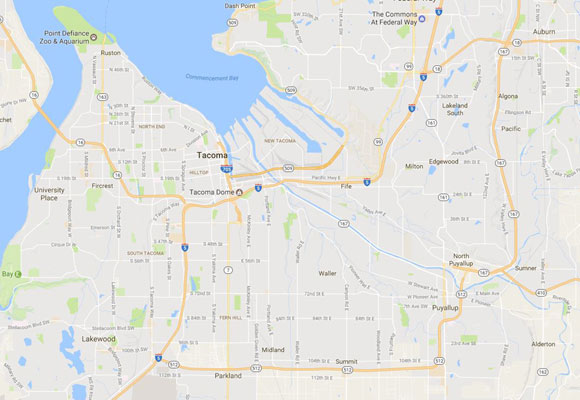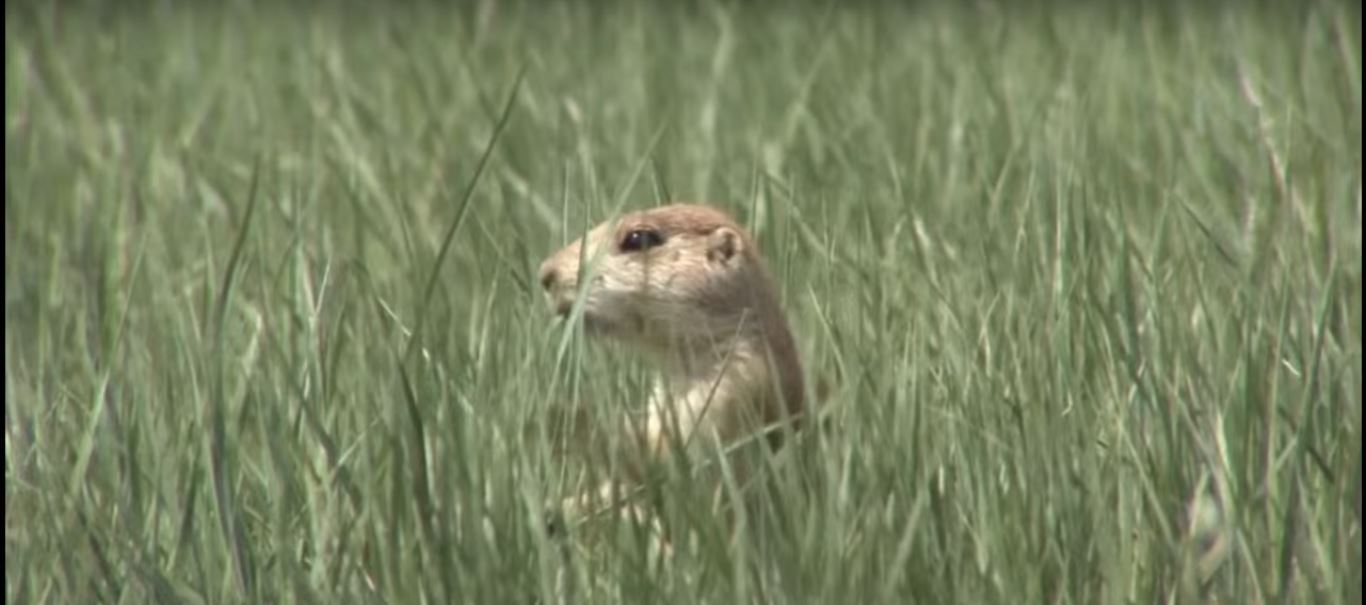
Pest Animal Removal Tacoma - Wildlife Control
Welcome to Pest Animal Tacoma! We are a wildlife removal company servicing Tacoma, WA. Our phone staff are not only very knowledgeable and trained, but polite and friendly — exactly what you need in a stressful and worrying wild critter situation, such as coming across a snake in the kitchen. Our field staff are just as friendly, and they'll turn up ready and willing to get their hands dirty, doing whatever they need to do to not only remove the animal in question, but also all traces of the animal's existence. In many instances, this can mean cleaning away bedding material, feces and urine, dead carcasses, food remnants, and much more besides. Whether it needs repairing, sealing, or cleaning away, we've got everything required to get the job done safely and effectively, leaving you with nothing left to do except sit back and relax in your newly animal-proofed home. Call us now at 253-292-2910 for your Tacoma wildlife control needs.
About Pest Animal Tacoma and Our Services:
Same-day or next-day appointments.
Thorough inspection of your property and attic.
Humane wildlife trapping and exclusion.
We repair wildlife damage and prevent re-entry.
We offer attic cleanup and sanitation services.
Fully Washington licensed and insured.
Poison-free Tacoma rodent control - rats and mice.
Experts in Washington bat removal from buildings.
Tacoma raccoon removal and skunk removal.
Dead animal removal, inside and outside.
Tacoma snake removal and prevention.
Our Service Range

Our Service Range
We service King County, Pierce County and Snohomish County. We service towns such as Seattle, Tacoma, Bellevue, Everett, Auburn, Bainbridge Island, Beaux Arts Village, Bonney Lake, Bothell, Bremerton, Brier, Burien, Covington, Des Moines, Duvall, Enumclaw, Edmonds, Federal Way, Gig Harbor, Issaquah, Kenmore, Kent, Kirkland, Lake Forest Park, Lake Stevens, Lakewood, Lynnwood, Maple Valley, Marysville, Mercer Island, Mill Creek, Mountlake Terrace, Mukilteo, Newcastle, Normandy Park, Puyallup, Poulsbo, Redmond, Renton, Sammamish, SeaTac, Shoreline, Silverdale, Tukwila, Woodinville, and Woodway.Tacoma Wildlife Removal Tip of the Month: Are Repellents Like Powders or Machines Effective at Solving Wildlife Conflicts?
Defending your home from wild Tacoma animals is a process that takes efforts on multiple levels. On the one
hand, you need to maintain your estate in a good shape to not allow the animals to get in. on the other
hand, you need to know the wildlife in the area you live in pretty well. There is no better way to protect
your home against wild animals than knowing exactly which species to look out for. It could happen that you
only need to watch out for rats and mice. In this case, regular maintenance and proper hygiene should do
enough. But, your home could also be in danger from opossums, skunks, raccoons, bats and squirrels. To know
exactly what type of an animal to protect your home from, you are going to have to do some research. In
general, repairs, fencing, and trapping are amongst most effective ways of getting rid of wild animals.
But, many wonder if the use of widely known animal repellents might help them to keep Washington animals away.

Wild Washington animal repellents come in different shapes, forms and manufacturers. Mainly, they fall into two major
groups. First groups of repellents include all sorts of chemical repellents. These come in different forms
as well. While some are homemade and natural, others are industrial and made out of industrial chemicals.
The second group of repellents includes mechanical repellents. Mechanical repellents are, essentially,
machines that emit different types of signals that are supposed to scare the animal away or cause them
discomfort using light or sounds. Unlike mechanical, chemical repellents use strong smell and taste to
deter wild Tacoma animals.
Powder chemical repellents consist out of different sorts of condiments, that are supposed to disturb the
animal to such degree that eventually stops attempting to access the areas in which the powder is applied in.
powder repellents also come in a homemade, natural and industrial home. Home- made powders usually mix different
household condiments that have strong smell and taste. Natural powdered repellents are often sold in stores and
based on ingredients like herbs and oils (lavender, cinnamon, lemon, chili, pepper etc.). Often, people use
mothballs to deter different wild animals. On the other hand, industrial chemical repellents contain strong
chemicals like bleach and ammonia, as well as many other harsh chemicals. The strong smell of these chemicals
is supposed to overwhelm the animal's sense of smell and make the area unbearable for them to reside in.
Chemical repellents also come in a form of sprays. Both homemade and industrial, these sprays are mixed in to
create a compound that will repel different types of Washington animals. Using strong-scented condiments like ammonia,
lemon, and chili, these are also supposed to create an unbearable living environment for the wild animals.
While home- made spray repellents are fashioned from different kitchen condiments mixed in a spray bottle,
the industrial ones are made out of stronger scented extracts, oils, and acids. Since many of these contain
ammonia, they are also often considered to be toxic.
Machine animal repellents use different deterrents like strong lights and loud sounds to scare the wild Tacoma animals
away. The majority of these installations are supposed to turn on as the Washington animal approaches the area, emitting
disturbing signals and scaring it away. While one group of these repellents uses light signals to deter wild
animals, the other uses loud noises in order to keep the animals away. These machines are usually installed in
spaces like yards, attics, porches, and sheds, as well as other areas which are likely to get invited by
the pests.
But, are these repellents effective enough? While some claim that the repellents, in general, are a good way of
keeping the Washington animals away without harming them, others claim that they are simply not as effective as other methods
of animal removal. When it comes to chemical repellents, they are not considered to be particularly effective.
Depending on the animal species, they may be successful to a certain degree, but not indefinitely. Chemical
repellents, especially natural and homemade ones, are known to lose their strength quite fast. They will dry
out in the sun in a matter of minutes, and also wash out in the rain. They will, additionally, simply degrade
in contact with the air and lose their deterring qualities. On the other hand, the industrial chemical repellents
are known to be quite toxic and dangerous for humans, particularly homeowners, as well as children and pets. In
addition to not being safe, these are also often ineffective. More often than not, wild Tacoma animals will simply grow
accustomed to the smell of these deterrents and it will no longer bother them.
When it comes to mechanical repellents, they are also considered to have a modest success rate. On the one hand,
wild animals are capable of quickly learning that flashing lights and loud noises are no threat to them. On the
other hand, animals are very capable of adapting to new living circumstances, especially if driven by fear and
hunger, amongst other instinct. It is safe to say that the main shortcoming of using these installations comes
from the Washington animal’s natural ability to adapt and overcome obstacles in order to survive.
Other Wildlife Control Tacoma information
- Biology of Evening Bat
- What Are Some Of The Symptoms Of A Sick Squirrel?
- Humane Ways to Kill a Raccoon in a Cage
- Will A Pest Control Company Remove A Skunk?
- What are Opossum Tails Used for?
- Will Repellents Get A Squirrel Out Of Chimney?
- Removing Rats from Your Attic
- How to get Groundhogs Out from Under a Shed or Porch
- Skunk Trapping
- What Diseases do Opossums Carry?

